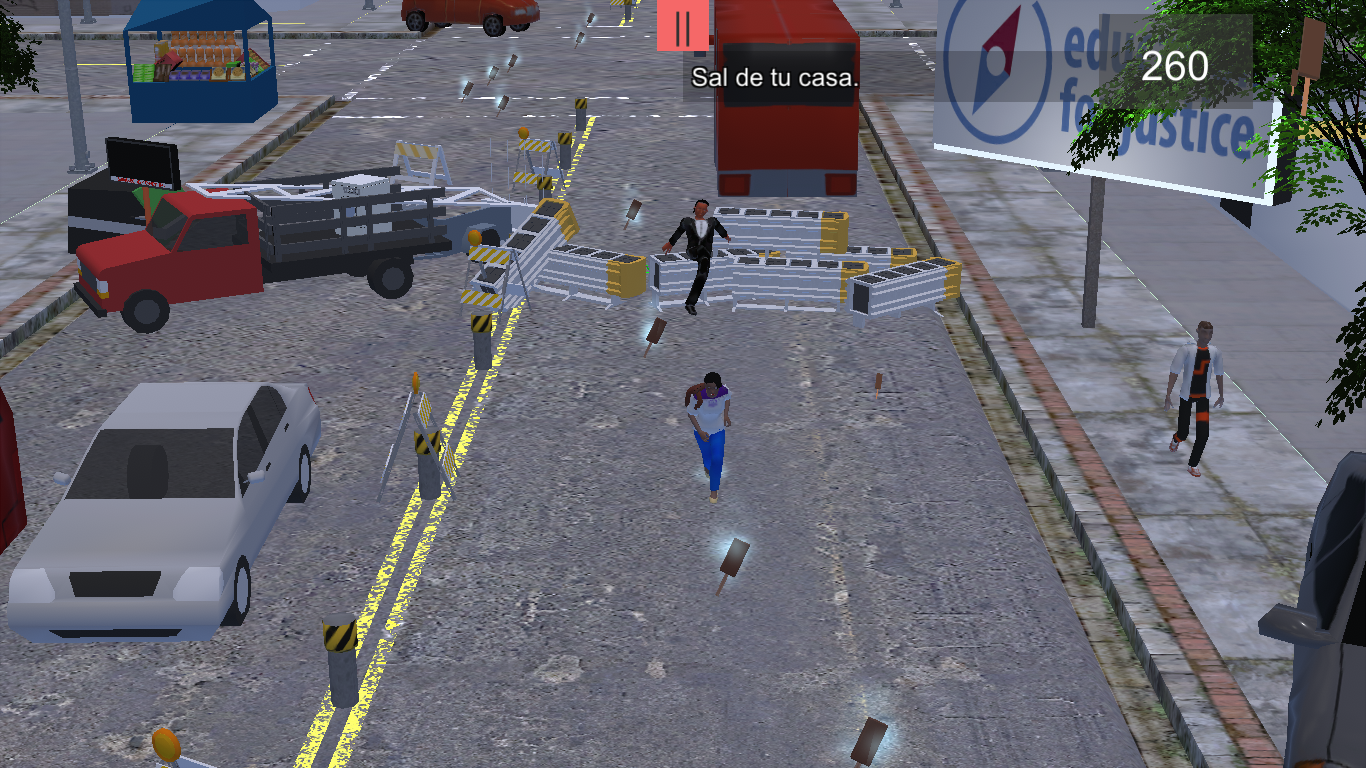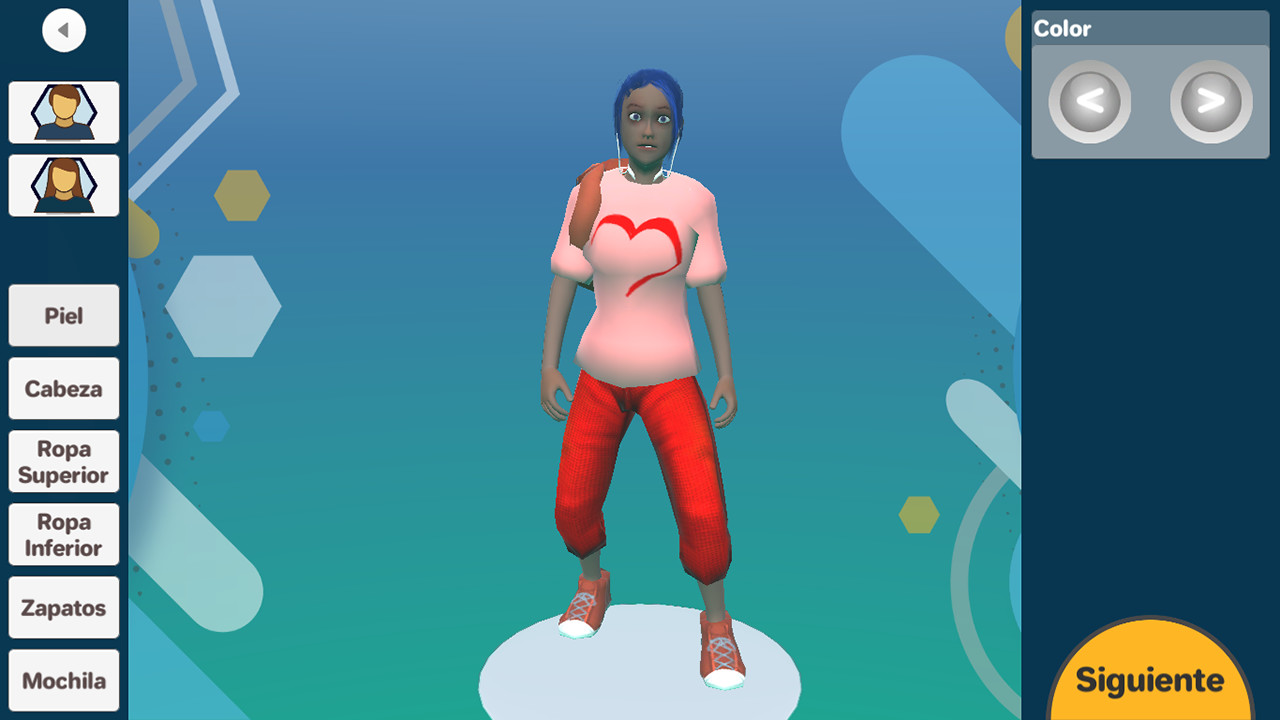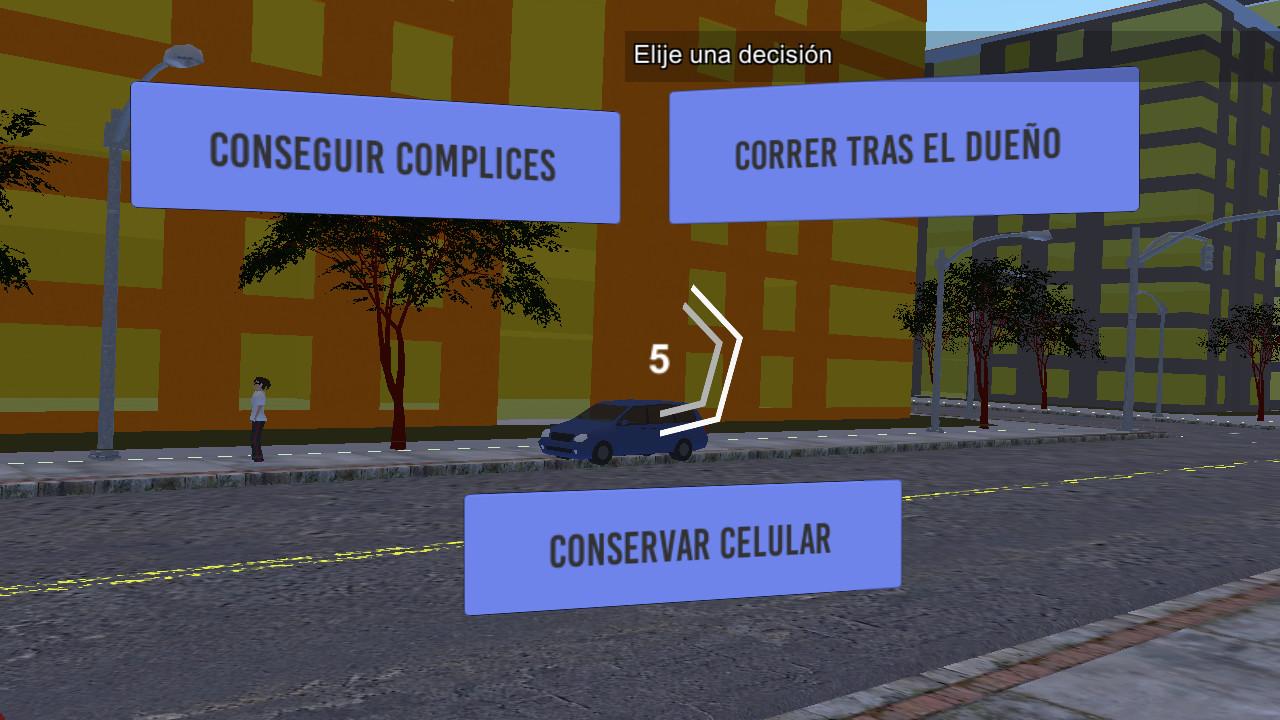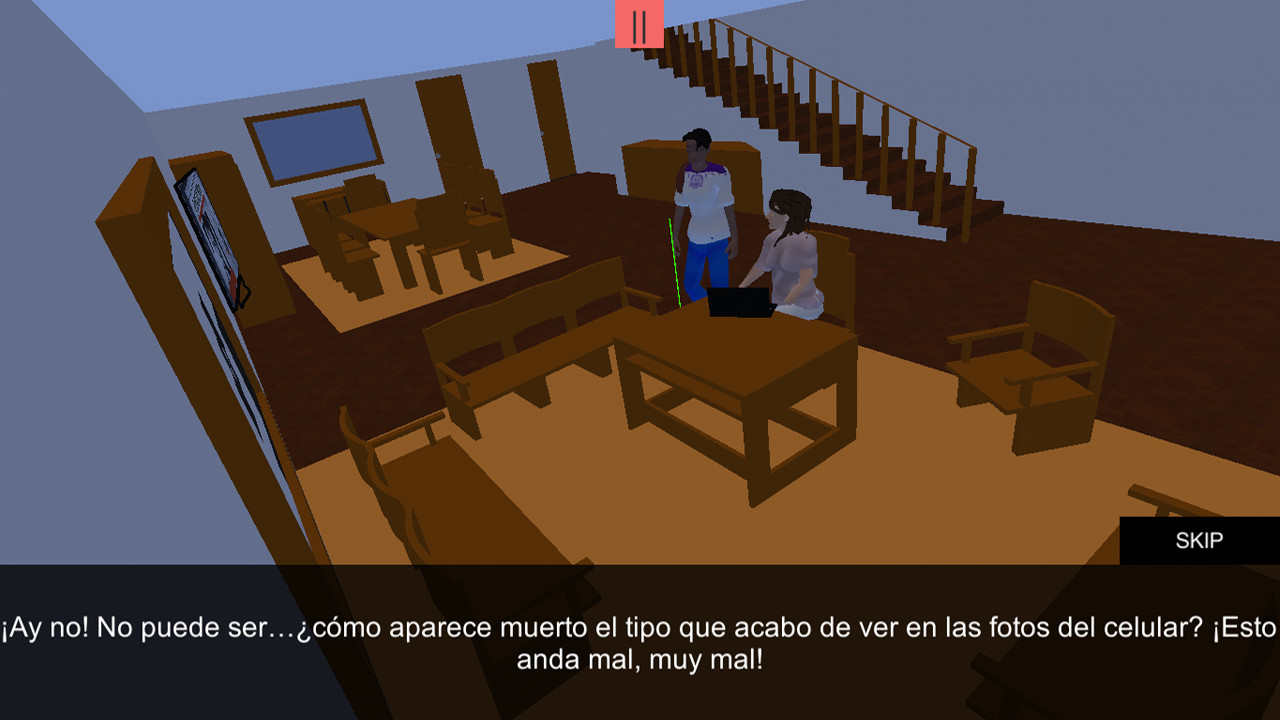
Disonante
The innovative educational game Disonante was developed in the framework of UNODC's Education for Justice (E4J) initiative. The name 'Disonante' is a reference to cognitive dissonance, which occurs when people face complex choices about what is right or wrong.
The player assumes the role of one of the protagonists and explores the world through his/her perspective. The character finds him/herself in a series of scenarios which require decisions about how the story should continue, earning points in the process. Just as in real life, all decisions have consequences and ultimately lead to various outcomes. The interactive nature of the game allows the player to experiment with multiple courses of action leading to 15 possible endings of the story.
Through a process of contextual learning, the game seeks to foster moral values such as honesty, empathy, loyalty and taking responsibility for one's actions. Being confronted with ethical dilemmas, the player's ability to choose the right actions and attitudes is tested in the context of justice, the prevention of corruption and transparency. The situations which the player faces require a high degree of reflection and critical thinking which leads to the internalization of moral values.
Disonante was designed for teenagers between the ages of 13 and 18. During the development process, teenagers were continuously consulted about the quality of the story, graphics, gameplay and other aspects of the game, which made Disonante a video game built in a participatory manner with its intended audience, the youth.
Language |
Spanish |
Release date |
April 2019 |
Target age |
13 - 18 years |
Developer |
Xiara Studios |
 |
 |
 |
 |
Available on
 |
 |
 |
 |